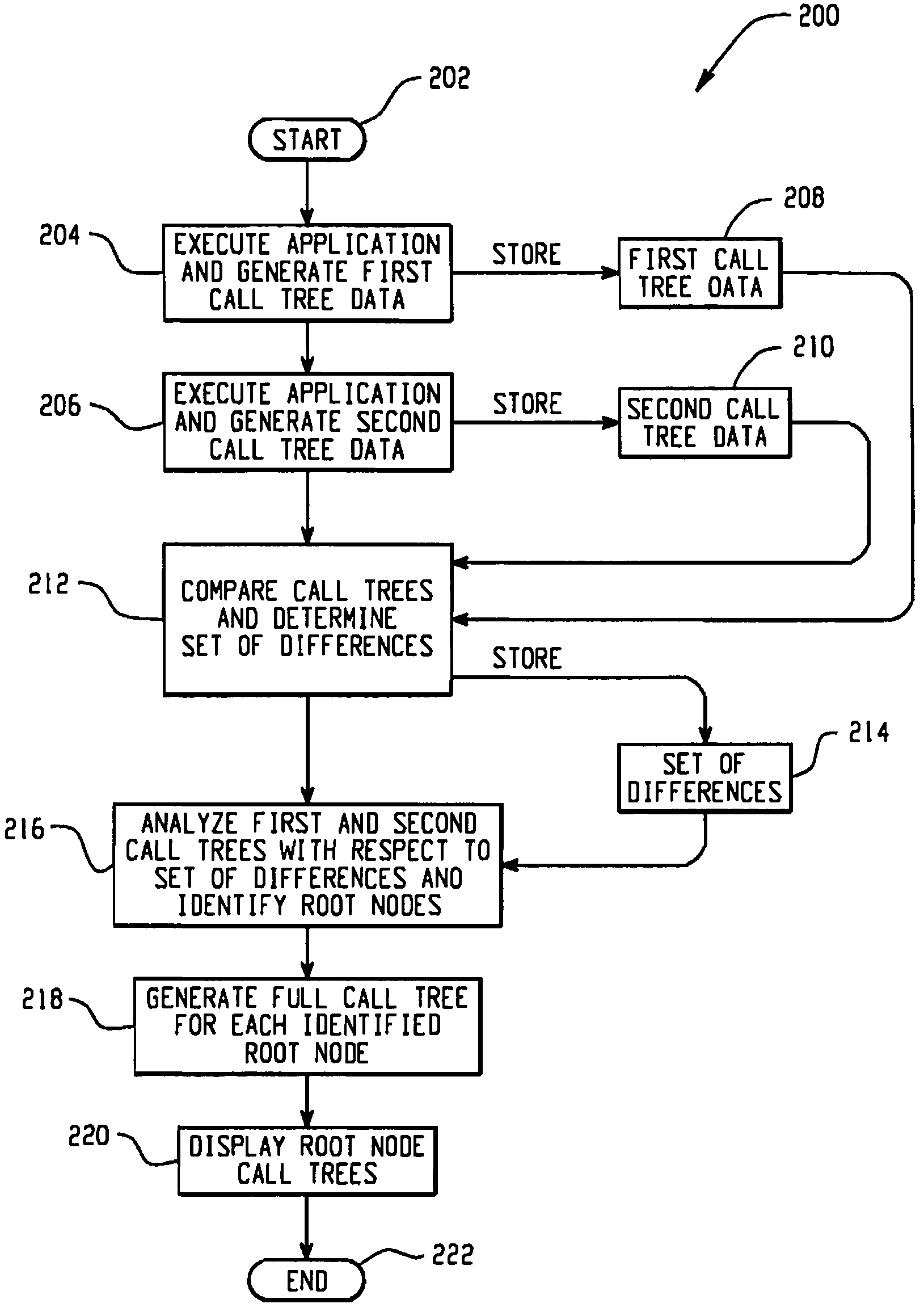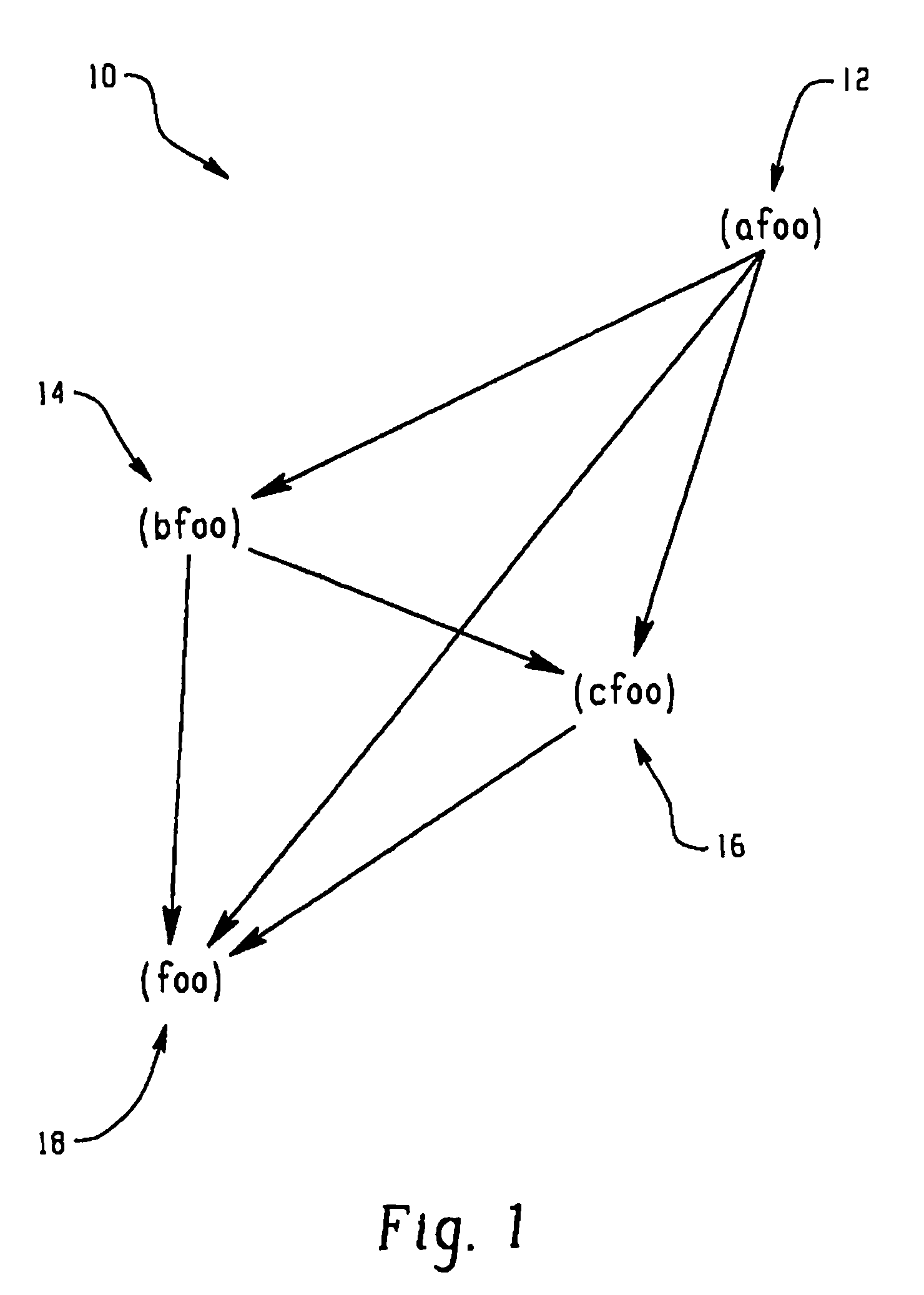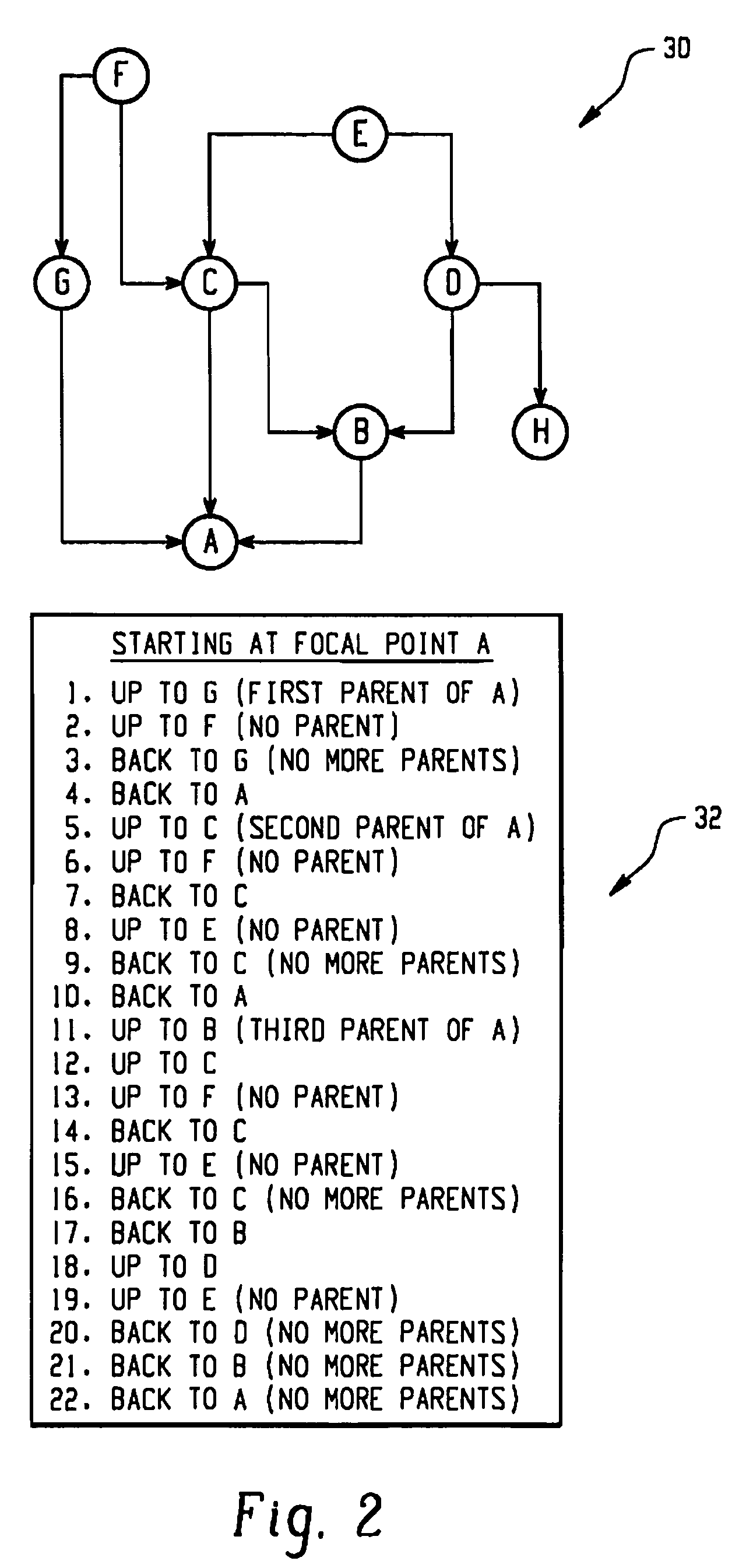System and method for determining execution path difference in program
a technology of execution path and system method, applied in the field of software performance analysis and diagnostics, can solve problems such as the redundancy of calling paths in complex applications
- Summary
- Abstract
- Description
- Claims
- Application Information
AI Technical Summary
Problems solved by technology
Method used
Image
Examples
Embodiment Construction
[0019]Turning now to the remaining drawing figures, FIG. 2 is an example node traversal diagram 30 showing a call tree and a method for traversing the nodes of the call tree. In this example, there are eight nodes in the call tree, labeled A through G. The node A is termed the “focal node” in this diagram because it is the node currently under analysis to determine the source of its disparate operation. The “parent tree” of focal node A is shown in FIG. 2, which graphically depicts the full call paths of the nodes calling into the focal node. A “parent node” is a node in the call tree that calls a particular node under consideration, and a “child node” is a node that is called by a particular node under consideration. Other familial relationships apply to the description of the call tree as well. For example, nodes G, C and B are the parent nodes to the focal node A and thus the focal node A is the child node to nodes G, C and B. Node F is a parent node to nodes G and C, and thus it...
PUM
 Login to View More
Login to View More Abstract
Description
Claims
Application Information
 Login to View More
Login to View More - R&D
- Intellectual Property
- Life Sciences
- Materials
- Tech Scout
- Unparalleled Data Quality
- Higher Quality Content
- 60% Fewer Hallucinations
Browse by: Latest US Patents, China's latest patents, Technical Efficacy Thesaurus, Application Domain, Technology Topic, Popular Technical Reports.
© 2025 PatSnap. All rights reserved.Legal|Privacy policy|Modern Slavery Act Transparency Statement|Sitemap|About US| Contact US: help@patsnap.com



